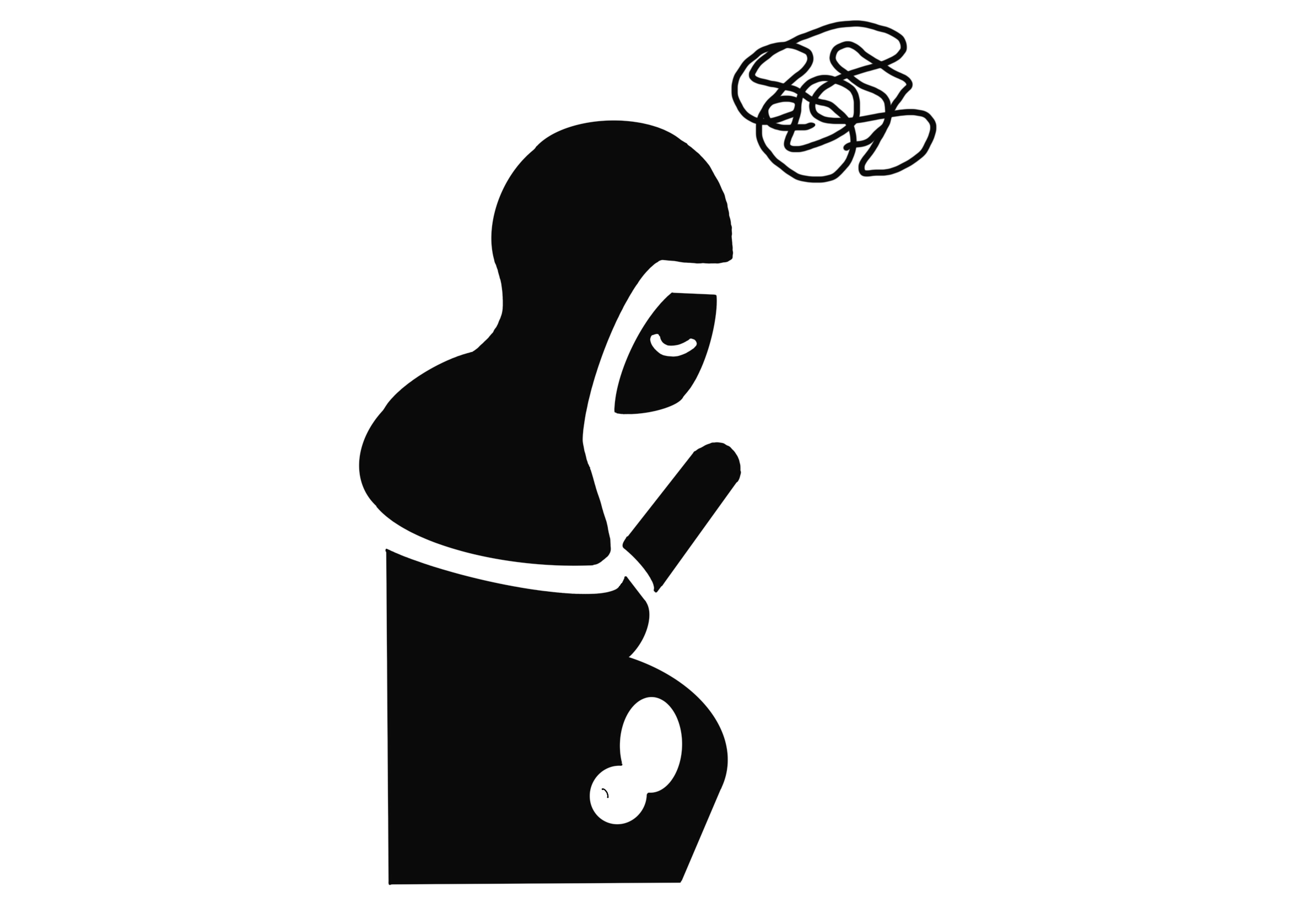

Emotional Readiness for Embracing New Life: The Joy, Anxiety, and Emotional Fluctuations of Parental Roles
You absolutely have no idea about the extent of emotional fluctuations when a girl is pregnant! An article that guys must read!!
Pregnancy and welcoming a new life is a significant moment for a family. Parents need to emotionally prepare themselves to cope with the joy, anxiety, and emotional fluctuations that come with the new roles. Bathed in the anticipation of a new life, future parents experience a rich array of emotions. Emotional preparedness is crucial for becoming parents because it’s not just a physiological task but also an emotional journey.
After getting pregnant, the originally gentle and understanding wife becomes more “petty”? Easily irritable and anxious? These changes in emotional state during pregnancy are actually caused by hormones. Many soon-to-be fathers have this question: how did their wives, originally so understanding, become touchy and irritable as soon as they became pregnant?
Indeed, many husbands notice that their wives, after becoming pregnant, are no longer the amiable and understanding individuals they were before. The once empathetic and reasonable wives gradually become unreasonable. Even at the beginning of the pregnancy, the relationship between the mother-in-law and daughter-in-law might have been quite harmonious, but gradually, the wife becomes more “petty”. What on earth is happening?
The emotional changes during pregnancy are all caused by hormones. 🧬
The most common emotional changes during pregnancy are anxiety and depression, which are closely related to changes in the pregnant woman’s hormone levels. As pregnancy progresses, the levels of estrogen, progesterone, thyroid hormones, and other hormones in a pregnant woman’s body gradually increase. This increase can lead to symptoms similar to premenstrual tension syndrome, such as anxiety, depression, and emotional instability. 😟
On the other hand, during pregnancy, due to the combined action of various hormones, there is an increase in protein and fat synthesis. Pregnant women may experience overall body changes leading to a sense of “weight gain,” which can make some fashion-conscious pregnant women feel uneasy and lose confidence. 😓
Negative psychological factors: Triggers for emotional fluctuations
Changes in hormone levels are the internal cause of emotional fluctuations in pregnant women, while negative psychological reactions triggered by external factors serve as the external cause. When women discover their pregnancy, their psychological state often involves a mix of joy and concern. Concerns may revolve around whether their body can handle the normal development of the fetus, the health of the fetus, and whether it’s a boy or a girl. Especially for pregnant women of advanced maternal age, they are more prone to experiencing nervous and fearful emotions. 😰
Additionally, the perspectives of husbands, in-laws on the gender of the child, as well as life stresses, interpersonal relationships, and other external factors, can also exert a certain psychological impact on pregnant women. 😟
Negative emotion of pregnant women will affect fetus?
The fetus and the pregnant woman are interconnected, and the fluctuations in a pregnant woman’s emotions can impact the fetus through changes in the endocrine system. Although mild and brief emotional changes during pregnancy may not harm the fetus, severe stress or other factors leading to excessive nervous tension can affect the brain and hypothalamus, leading to increased secretion of adrenaline. On one hand, it causes increased vasoconstriction in the blood vessels around the pregnant woman, leading to inadequate blood supply to the placenta, resulting in fetal intrauterine ischemia and hypoxia. On the other hand, it may promote the contraction of uterine smooth muscle, further impeding fetal blood circulation, and even leading to miscarriage or preterm birth. 😨
Furthermore, if a pregnant woman remains in a state of prolonged tension and anxiety, the fetus may experience increased fetal movement and heightened energy consumption, resulting in a lighter birth weight compared to an average newborn. The occurrence of abnormalities in the digestive system after birth, such as feeding difficulties, also relatively increases. Research data has also shown that women who experience negative emotions during pregnancy have an increased incidence of abnormal personality traits in their babies after birth. 😢
How Mother-to-be Can Maintain a Positive Mood
Understand the basics of pregnancy. Before getting pregnant, both partners should be adequately prepared. Consult a doctor or read more related books to understand the relevant knowledge about pregnancy, distinguishing what is normal, what is abnormal, and which abnormalities can be addressed through medical means.
Avoid excessive worry about the fetus. Pregnancy is a physiological process, and in today’s medical conditions, the vast majority of people can safely go through the pregnancy and childbirth period. Mother-to-be should have regular prenatal check-ups, pay attention to the usual fetal movements, and promptly seek medical advice in case of abnormalities. Unfounded worries, unnecessary concerns, not only lack necessity but are also detrimental to the fetus. While the child is an important part of parents’ lives, they are not the entirety of life. As they welcome the arrival of new life, mother-to-be should not lose themselves and engage in activities they find interesting, which will aid in smoothly passing through the pregnancy period.
Communicate more with family, sharing the joys and challenges of the pregnancy process. Family members should provide mother-to-be with ample understanding and tolerance, making an effort to avoid words and actions that might trigger negative emotions in pregnant women.
Emotional readiness is the key to ensuring expectant parents are better prepared for their roles as parents. Understanding and accepting one’s emotions, sharing and communicating with your partner, and actively seeking support are essential steps to ensure success in welcoming a new baby. In this process, being willing to experience happiness, overcome anxiety, and handle emotional fluctuations is normal and part of the journey into parenthood. This emotional preparedness contributes to building a strong family and nurturing healthy children. It’s an emotional rollercoaster journey, but also a cherished experience worth embracing.
Related posts:
- Why “Psychological Preparation” is important for Pregnancy?? The arrival of a baby is a miraculous event in one’s life, and the emotional preparation before and after pregnancy is the key to embarking on this marvelous journey. From...
- Life’s Transformative Journey For Pregnancy : Embracing the Arrival of Your Baby and Navigating Shifts in Time, Energy, and Emotions Having a child is a significant life change that profoundly affects marital relationships and family life. Understanding and accepting these changes are of utmost importance. Whether it's welcoming the first...
- You Must Know The Reason Important of Physical Preparation For Pregnancy. Embark on a transformative journey into parenthood with our blog! Uncover the 8 essential physical preparations for a blissful pregnancy. Elevate your understanding and embrace the joy of expecting. Dive...
- Consequences If You Didn’t Know Importance of Physical Preparation… Neglecting the groundwork for the body might lead to a cascade of consequences that cannot be ignored. Let's delve into why physiological preparation plays such a pivotal role in embracing...
